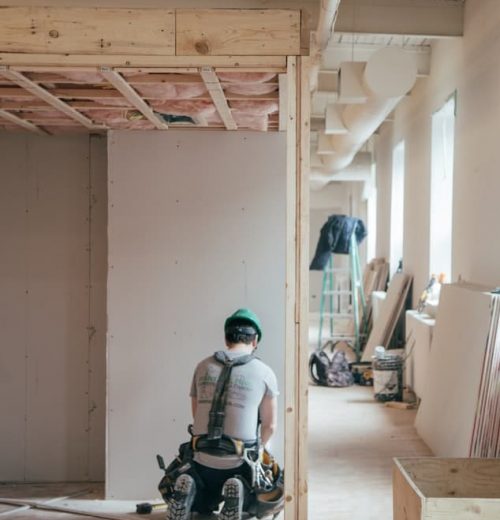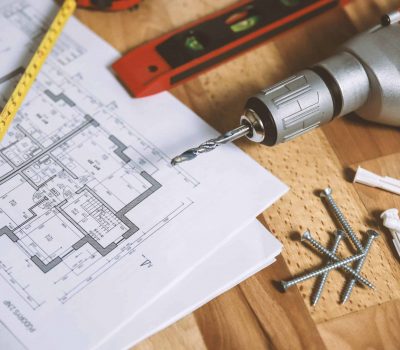

We are constantly searching for qualified contractors to work with us on our real estate projects around Fairfield County, CT!
Our Model
We Buy a Property > Take Contractor Bids for Rehab Project > Pay You Based on Project Milestones
Fairview Futures Property Solutions, LLC seeks to partner with agencies, institutions, organizations, foundations, etc. that promote sound redevelopment planning practices. We only want to work with those who are supporters of our Connecticut communities.
Do you or your company endorse equitable and sustainable strategies and solutions that have the people of Connecticut in mind?
We make every effort to ensure uniformity within local and state policy development and implementation.

Did You Know as a private money lender you will have the right to set your own interest rates, payback terms, and prepaid interest (points)?
You may also choose to lend in 1st, 2nd, or 3rd position!
Our Model
The first step towards working with us as a general/independent contractor is to review the project information and make your bid on the project!
Available at each property we purchase, there will be Bid Packages for interested contractors to review. Among the documents included within the Bid Package is the Scope of Work (SOW). The SOW is needed for potential contractors to fully understand the details of the job being offered. For contractors to actually bid on our project, we will use the SOW to develop a Quote Itemization Form (QIF) that shows the line items that we want our contractors to include in their bid. This way we can compare apples to apples amongst multiple contractors within an uniform system.
Fairview Futures Property Solutions, LLC actively seeks out every opportunity to build long lasting relationships with qualified contractors who are professional and serious about their work. By working with a redevelopment company such as us, our contractors can expect consistent work year round, systematized action plans, and guaranteed payments. Our success will always extend to our trusted contractors. Without our teams, we would not exist!
Our Bid Package Includes:
Bidding Requirements:
• Every item from your scope of work/quote itemization form needs to be present in the bid.
• Itemized quantities & prices should reasonably match the quantities & prices we’ve estimated (within reason) when preparing your version of the scope of work.
• No additional items should be added (unless discussed prior)
• License and insurance information is confirmed and up to date
• Professional references have been confirmed.

We are looking for qualified professionals who take pride in their work. There will be very high potential for repeat business if you are accepted. We do NOT accept flat rate, lump sum bids on our projects. Contractors must itemize their bids and break down their costs by labor and materials.
All qualified contractors will be interviewed before any bids are accepted

Our Safety
No work will be done on any Fairview Futures project until the binding agreements below have been presented and signed. This protects both our company and our contractors. Contractors will need to provide proof of certain items such as licensing, liability insurance, and provision of workers compensation.
Listed below are the 6 critical documents we require from ALL contractors.

This is the main binding contract between Fairview Futures and each of our contractors. This document lays out all terms & conditions, services provided, project cost estimates, taxes & building permits, necessary approvals, invoicing & payment conditions, penalties and arbitration. Sample Independent Contractor Agreement
The Scope of Work (SOW) is the foundation of our rehab projects. It is an agreement between Fairview Futures and our contractors as to the extent of the project and the materials to be used. Think of it like a to-do list. Having a SOW document minimizes miscommunications and holds our contractors accountable to an agreed-upon set of improvements and prices. The Scope of Work is where we provide detailed job descriptions in an easy-to-read, itemized format; and when we say detailed, we mean detailed! Every detail down to paint color, faucet fixtures, etc. needs to be called out and itemized for our projects. Must we take everything out and start from scratch? Should we replace the “harvest gold” appliances with “stainless steel appliances, Part #12345, sold at Home Depot“? Door and cabinet hardware? Obviously, anything that is broken will need to be repaired as well, but can anything be salvaged and re-used? Without a clearly-defined and well-thought-out SOW, it is very easy for project costs to spiral out of control and break our budget. Sample Scope of Work
This is a schedule of when you will make payments to your contractor based on specific milestones completed. Sample Payment Schedule
This form clearly states the insurance requirements needed by the contractor; both liability and workers compensation. Sample Insurance Indemnification Form
You are required by the IRS to have every employee you hire on a contract basis (and pay more than $600)
to fill out a W-9. Sample W-9 Form
This is the one document that won’t be signed until the end of the project. The lien waiver states that the contractor has been paid in full for the agreed upon work and has no right to a lien on the property for any reason whatsoever. Sample Unconditional Lien Waiver
All documentation presented is legally binding. A lawyer must review any modifications and additions made before signing in respect to local legal regulations. This protects all parties involved. Additionally, no documentation is to be signed prior to closing on the property.
Our System
We conduct extensive analysis of our prospective deals and generate very detailed reports on every aspect of each deal from start to finish. Our documentation will cover the purchase price, rehab costs, After Repair Value (ARV), cost of taxes and permits, as well as many other essential details.
We approach each project as follows:

As a contractor you are expected to review each deal using our documentation as support for your own due diligence. Our process is strict and detailed. As such, we will not change details on previously approved documents without a justifiable reason.
Project Beginning
After closing on the property and signing the documentation, we will set up a time for a project kick-off meeting at the site with the general contractor and all subcontractors to introduce everybody, share contact information, and establish site managers.
This meeting allows Fairview Futures and our contractors to verify that we are on the same page regarding the rehab. This is where we may collaborate and iron out any misunderstandings prior to signing project paperwork. By the end of this meeting, everybody should fully understand our expectations for the project scope, budget, and timeline. We will also walk through the project together to make sure that nothing essential was left out of the scope of work. Fairview Futures Property Solutions, LLC assumes the role of Project Director for every project. That said, we will gladly utilize our contractor’s experience and expertise to provide insight as the project progresses. Contractors must know that we will be involved in the project, but will not be micromanaging. Site managers will be appointed prior to beginning the work.
Fairview Futures works to maintain professional and respectful relationships with its team members based upon trust & respect of one another.
We are going to rely on our site managers, general contractors, and sub-contractors to work quickly and effectively while diligently following the agreed upon action plans and due date.
Contractors will be in charge of scheduling, purchasing materials, and pulling permits. Our type of work often demands that we pull permits. Even if the work may NOT require a permit to your knowledge, that will need to be determined by the building department after we explain the scope of our project. We maintain a close relationship with town officials and must maintain a good standing with these people/departments.
Out with the old, in with the new. This is the first phase of our rehab project and also when we expect to discover any unforeseen problems not found in the initial inspection. Jobs in this phase may include tearing out flooring, removing fixtures, and knocking down walls. Depending on how much demo and trash is at the house, our team may need multiple dumpsters ready. After the demo and clean out, we will walk through the property and once again review the projects plans and scope of work. Any changes to the layout and our original scope of work will be considered & reviewed before we move on.
After the carpenters are finished, the electrical, plumbing, and HVAC (heating, ventilation, and air conditioning) subcontractors will come in and work their magic. The building inspections that take place at this time are critical and will need to happen at the end of the rough-out phase before the insulation and walls are closed up. Electrical, plumbing, and HVAC work must be signed off on before we schedule the final rough inspection and move forward.

A building inspector CAN and WILL shut down our project if they find unapproved work being done on the property. We will be fined, penalized, and restricted from working on our project. So yes, to reiterate, we take this seriously.
Framing out the house creates the skeletal structure of our new space. Our teams will be framing any new spaces like bathrooms, kitchens, additions, etc. Carpenters will frame any new walls and mark the location of new utilities, appliances, and lighting. Once the frame-out is complete, other trades can come in and get started on the rough-out.
After all of the inspections have been passed, insulation can be placed in the walls and around the new utility work. Since the insulation will obscure wiring, piping, and ducting, the insulation MUST go in AFTER the rough inspection. In some municipalities, the building inspector needs to make one more visual sign off on the house after the insulation is complete and before we close up the wall.
This is the fun part of the rehab! Sheet rock and taping will be the longest part of this stage. Upon completion we can install the door trim, window trim, baseboard and crown molding. After the trim work is finished, painting will commence. Now at this point, it is a race to the finish. The electrician is installing electrical fixtures, light switches, plugs and plates. The plumber is installing fixtures, faucets, toilets, and shower trim. The HVAC contractor is installing the heating registers, thermostat and final cosmetic touches. Finally, the carpenter is completing all big and small finishes such as cabinets, counter installation, tile work, touch up painting, flooring, etc. to deliver a finished product that matches the original scope of work. Our vision and your masterpiece has now become a reality.
When the last milestone has been completed and signed off on, we are ready to start closing out the project. It is inevitable; no matter how skilled the contractor, there will be little things that are overlooked. Our team will need to do a thorough walkthrough of the property with the general contractor and develop a punch list of items that need to be addressed before we will sign off on the work. Once all items have been addressed and approved by us, we can move forward and schedule any final inspections required to close out the building permits. Once the permits have been signed off on, and everybody is happy with the completed project, the contractor will sign the Final & Unconditional Waiver of Lien before receiving the final payment for the job.
This waiver indicates that both our company and the contractor agree that the project is complete per the contract and that contractors do not have any grounds to make a claim or file a lien against the project. The amount of the final payment is typically included with the waiver of lien and is acknowledged as payment in full.
It is very important to us that these final steps are done in this order. We will not, under any circumstances, make the final payment to the contractor until we have received the Certificate of Occupancy from the building department upon final walkthrough, and the contractor has completed the final punch list. Once those steps are completed, and our contractor signs the Final & Unconditional Lien Waiver, we will issue the final check and thank our contractor for a job well done!
Close-out & Payments Checklist
Interested in Working With Us on Future Projects? Register Today!

Contractors who build a report with us WILL see consistent work opportunities in the future
Coming Soon
Coming Soon